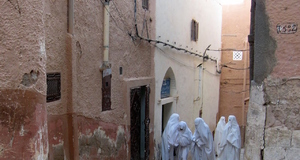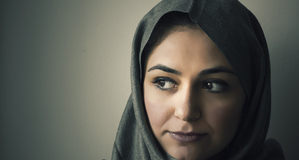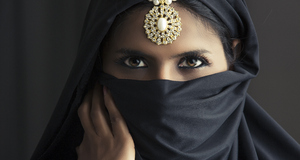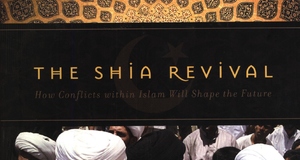Democracy and Islamism in Algeria: Islamocracy?
By
2011, Vol. 3 No. 04 | pg. 1/2 | »
KEYWORDS:
Following a successful war of liberation in 1962, Algeria successfully gained independence from France and an authoritarian social regime took power. The success of this government lasted into the 1980s, when Algeria's oil reserves began to decline.1 This was perhaps the most significant factor that led to the rise of Islamism in Algeria. According to Sheri Berman, "The economic difficulties of the mid to late 1980s coincided with the large scale rise of Islamism, as many middle-class educated youth found themselves jobless and without prospects. Islamism offered a governmental alternative that was more authentic culturally than imported, Western ideologies such as socialism, which had failed. The riots of October 1988 marked the end of Algeria's one party rule, as the government formally liberalized in 1989, allowing for competition between political parties. This political opening was exploited by Islamists, who quickly formed the Islamic Salvation Front (FIS). When the FIS dominated the parliamentary elections of 1991, the government suspended the elections. Violence quickly gave way to a civil war that lasted throughout the 1990s, leaving an estimated 100,000 Algerians dead."2 In the West, particularly in the United States, the separation of church and state is often taken for granted. However, this is not a universal norm, particularly where a religion contains the governing tenets usually found elsewhere--for example, in a country's constitution. Islam includes legal, social and political codes that Islamists are trying to reinstate, often against corrupt, authoritarian regimes.3 According to A. Hadenius4, the Islamists' inability to build a democratic political order is essentially due to their denial of popular sovereignty, and to their belief that the seat of power is eternally occupied by the notion of God. Furthermore, Hadenius argues that democracy consists of two aspects, the first of which is political and relates to the choice of leaders by the electorate, the second concerns the liberalization of society (equality of the sexes, freedom of speech, autonomy of the individual, religious tolerance). All Islamists reject the second aspect of democracy, but they are divided on the first.5 With such an attitude, one could project that even if Islamism was to prevail in Algeria, the international backlash would quash it, as the military sough to do in the early 1990's. As civil and human rights become more of a center stage issue in contemporary society the world over, one cannot ignore such rights in the name of religious interpretation and expect the international community to confer legitimacy upon it, and all the benefits and privileges, namely economic, that go hand-in-hand with such recognition.While traditional Islam does accept rebellion against an impious prince, Algerian presidents have all claimed to be attached to Islam. As such, they cannot be impious according to Islamic law. Article 2 of the constitution, moreover, stipulates that Islam is the religion of the state. From a religious point of view, rebellion cannot be justified in Algeria.6 Under the 1976 constitution, which has been modified and amended throughout the decades since, Algeria is a multi-party state. All parties must be approved by the Ministry of the Interior. To date, Algeria has had more than 40 legal political parties. According to the constitution, no political association may be formed if it is "based on differences in religion, language, race, gender or region." The CIA World Factbook categorizes the government of Algeria as being "socialist, based on French and Islamic law."7 Some scholars argue that what makes Islam incompatible with democracy is not the religion in itself, but the interpretation given to it by individuals who seek to divinize politics, thus allowing only those who follow the 'true path' to participate in the contest for power.8 Furthermore, one can observe that in Algeria, "both the regimes and their Islamist oppositions have appropriated the religious discourse and symbols as instruments of mobilization and control, i.e., of legitimization and power preservation, or as a mechanism of agitation to overthrow and/or de-legitimize the existing order or adversary. In Algeria, both these processes have been a common occurrence. Their objective was not the establishment of a democratic order, but the monopoly of political power."9 In April 2004, Algeria elected its president in "free and fair" elections.10 Ali Benhadjar, a former Islamist leader, refused to take part in the elections on the grounds that none of the candidates for president agreed to meet a list of the Islamists demands. Mr. Benhadjar insists that a secular minority stands in the way of Algerian Muslims' Islamic program. While an Islamist-led government would not suspend the democratic process, he explained, areas deemed sacred would become untouchable--Shariah justice, for one. He cited the democracy of Iran as a model.11 Given the current state of affairs in Iran and its role in the global arena, this statement alone is quite illuminating in trying to determine why Algeria has such a troubled past in trying to establish democracy. Smith goes on to say, "Many political analysts in Algeria believe that the electorate's support for the Islamists in 1991 was less a vote for the imams than a vote against the corruption and mismanagement of the military-backed status quo. Without a culture of political parties, there was no other credible alternative. By banning the Islamists and outlawing religious-based parties, they say, Algeria has given itself time to create political alternatives other than hard-core political Islam."12 Karl Marx is quoted as having said, "Religion is the sigh of the oppressed creature, the heart of a heartless world, and the soul of soulless conditions. It is the opium of the people." While many may consider this an oversimplification or generalization, recent history has shown that disenfranchised peoples do indeed turn to religion, or groups that claim to have an agenda rooted in religion, when all other possibilities have failed them. "Democracy" may be viewed as a relatively new concept in the history of the world, an entity that has seen both great success, as well as horrendous failure since its inception. However, one could argue that religion pre-dates democracy and while organized religion is as far from imperfect as democracy, it has nonetheless endured for millennia. Orthodox Judaism contains all the necessary ingredients for a functional society, codes and laws that define and dictate every imaginable aspect of life, yet the State of Israel, the Jewish state, is run as a democratic country, operating under a parliamentary system. If such a structure can work for the Jewish people, why must Algerians have to choose between Islam and democracy? No one model can be applied to every country, but given the striking similarities between Islam and Judaism, one could argue that Israel's synthesis of religion and politics is a starting point, though most of the Arab world would be loathe to admit as much. An abundance of natural resources, such as oil in Algeria, does not necessarily make for a rich country. In fact, the opposite tends to hold true, as corruption and a concentration of revenue from said resource become mainstays in such countries. These factors tend to isolate the people from their government leaders and cause them to seek inclusion elsewhere. This paves the way for Jonathan Farley's discussion of the Islamic revival movement, or Islamic fundamentalism and its effects on President Chadli Benjedid. According to Farley, "The revolution against the Shah of Iran in 1978/79 was basically international in character making the same kind of appeal to Moslems throughout the Middle East and North Africa as did Trotsky's to the European proletariats some 60 years before. The strength of its appeal lay in its call for a return to 'true' Koranic values, a call particularly addressed to the various Shi'ite communities in the region who felt that the oil prosperity of the previous two decades had passed them by. But Khomeini's Islamic crusade also made a notable impact on the poorer and less educated Sunnis along the whole North African littoral and caused these communities to question the relations which their governments maintained with non-Islamic, particularly Western countries. After all, was not the USA the great ally of Israel and was not Israel in possession of Arab Palestine and the holy places of Jerusalem? These three elements, therefore, the worsening economic situation, the gulf between rulers and ruled and the Islamic revival movement, conspired together by 1988 to make political life infinitely more parlous for Chadli than it had been for Boumedienne a decade previously."13 If there had been any trickle-down of money from the top and/or Algeria had outfitted its citizens with an education, the transition to democracy may have been a smoother and longer-lasting one. In furtherance to this point, Zoubir Arous, a social sciences professor at the University of Algiers, said "voters have become disenchanted with Algeria's politicians and see them as unresponsive to public concerns. In particular, he said, they wonder why the global rise in oil and gas prices hasn't improved their living standards."14 Another considerable factor in the clash between Islam and Algerian democracy is the role of the media. Westerners may bandy around the term "freedom of the press" but this right is not considered as such in many parts of the world. According to Ali Djerri, "The Algerian press has shouldered the responsibility of expressing the pain and aspirations of the people and exposing, on a daily basis, the atrocities committed by Islamic terrorist organizations…Journalism in Algeria is synonymous with death, jail and repression in all its forms."15 Furthermore, "1992 witnessed the first instances of suspension of newspapers and detention of journalists. The reign of terror and assassinations started in 1993 and continued unabated into 1997. The press was firmly squeezed between the pincers of Islamic terror and state repression...The only sound explanation of what happened, was that the state, on the one hand, and Islamic fundamentalism, on the other, were not capable of tolerating the freedom of the press or any other freedom, for that matter, and they remain so up to now. The only use the religious parties have for democracy, is to use it to impose their hegemony on the state and society and to strangle it immediately afterwards."16 In another New York Times article, Craig Smith discusses the lingering effects of the Algerian civil war, most notably, "a debate over whether the military rescued Algeria from the establishment of an Iranian-like theocracy or whether the repression only hardened an impulse that would have dissipated in democracy's tempering bath."17 Power elitists in the region believe that "it is simply too dangerous to allow essentially non-democratic movements to participate in fully democratic elections because they can't be trusted to respect democratic principles if they come to power."18 The main point is, "the circumscribed democracy that exists throughout the region doesn't only squeeze out Islamists; it prevents more liberal elements of civil society from participating in politics as well. That leaves most people without a political voice, caught between a distant, elitist and often corrupt government and a militant opposition rooted in fundamentalist Islam. Despite the periodic violence, the Islamist movement appears to be gaining ground."19 The central reason for the momentum of the Islamist movement is the fact that "In Algeria, as in many Arab countries, nearly three-quarters of the population is younger than 30 and half of those under the age of 25 are unemployed. The Islamist movement easily influences those people. The Internet and Arabic satellite TV stations from the Middle East have filled the void left by bland state- run media outlets at home, helping spread fundamentalism and a militant political message."20 This ties together the aforementioned problems of the disenfranchised factions of society and the lack of press freedom.Continued on Next Page » Suggested Reading from Inquiries Journal
Inquiries Journal provides undergraduate and graduate students around the world a platform for the wide dissemination of academic work over a range of core disciplines. Representing the work of students from hundreds of institutions around the globe, Inquiries Journal's large database of academic articles is completely free. Learn more | Blog | Submit Latest in International Affairs |


















